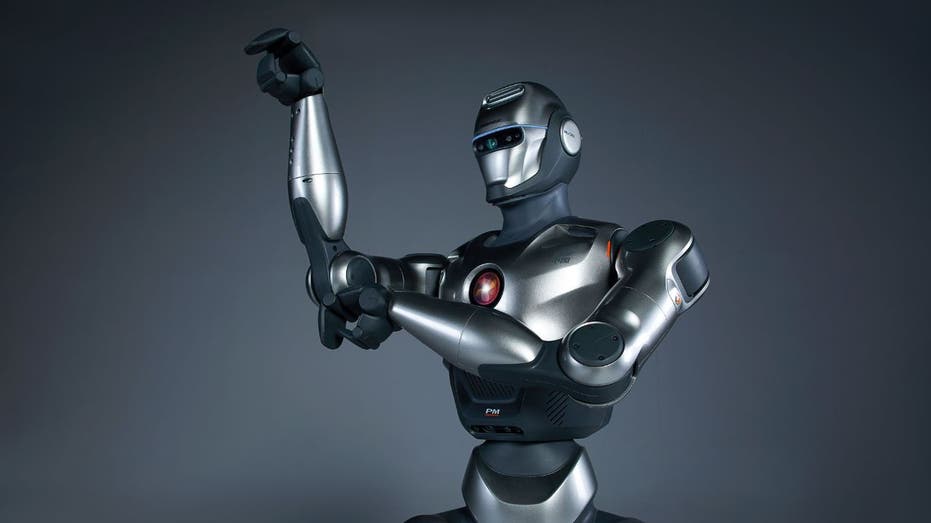- by foxnews
- 10 Mar 2025
Cathy O’Neil: ‘Big tech makes use of shame to profit from our interactions’
Cathy O’Neil: ‘Big tech makes use of shame to profit from our interactions’
- by theguardian
- 11 Apr 2022
- in technology

Cathy O'Neil is a writer, a mathematician and author of the bestselling Weapons of Math Destruction, which won the Euler book prize. Her latest book is The Shame Machine: Who Profits in the New Age of Humiliation, which looks at the ways shame is manufactured and exploited in a range of industries, including prisons, welfare systems and social media, for coercive and commercial purposes. She argues that a common intention is to shift responsibility for social problems from institutions to individuals.
This is a very different book to your previous one. What made you decide to write about the subject of shame?I first became really interested in shame while researching Weapons of Math Destruction. I talked to teachers who had been evaluated by a secret scoring system. And they were sometimes getting fired or denied tenure. When I asked if somebody had explained the formula to them, they said they were told it was math and they wouldn't understand. That silenced them. It was shame as a systematic mechanism.
What, by your own understanding, constitutes shame? Is it universal?It's universal. But shaming always happens with respect to a norm. And those norms aren't necessarily universal. Shame is a social thing that happens in the context of feeling like you're unworthy and you'll be unlovable by your community. There are a few universal norms around shaming; like sex - there's always some way to get shamed if you do it wrong. So you can try to shame somebody to behave well with respect to a norm. And then the question is, when does that work and when is it appropriate?
You talk about shame in terms of its commercial exploitation by "shaming machines". But is it different to or greater than the exploitation of other emotions, like sexual desire, vanity and insecurity?I think they have a lot to do with shame. Certainly, insecurity is a notion of feeling only contingently acceptable. So it's sort of the threat of shame. The first third of the book refers to traditional shame machines, like cosmetics for women, because they're ashamed of looking old. The middle section refers to how big tech is making use of shame to profit from our interactions. I think that is a new development that relies quite directly on the ability to hijack our pre-rational, triggered reactions and the existential threat that shame represents to our psyche.
Do algorithms target shame, or just anything that is popular?I think algorithms are optimised to service that which will arouse us the most. That usually means outraging us so we perform shame. In our filter bubble, our in-group, the algorithm serves to us the most outrageous thing that some other filter bubble has managed to arrive at, so we have the opportunity to be righteous and lob shame on to that other group, and to create this shame spiral.
Are there such things as good shame and bad shame, shame that is beneficial, and shame that is harmful? If so, who makes that distinction and how?I think the answer is yes. And I put forth suggestions for how to think through that. I'm willing to be corrected, but the basic notions I suggest are that if you're shaming somebody who cannot conform to the norm, or who has no voice, that's inappropriate and bullying. That's punching-down shame. The converse of that statement is that if you're shaming somebody for something that they've chosen to do against the norm you share with that person, and they have the opportunity to defend themselves, then that is appropriate, or at least it's not bullying. But that doesn't mean it will work.
You acknowledge that you could be accused of punching down by highlighting certain individuals in the book. As you write, "But I'm doing so in the hopes that we can all learn from it." Isn't that what everyone believes when they're shaming people?Right. I did change quite a few names of people in the book, just to prevent a little bit of that extra shame falling on them. I agree with you. I think a lot of people do think of it as setting an example rather than purely punitive. I just don't think jumping on a shame train of the latest Karen video [film of white women supposedly behaving in an entitled manner] sets an example that we need to see.
You cite JK Rowling as an example of someone you think is punching down because she's powerful, but she's a woman who's been threatened and called the most appalling things. Who's punching down to whom?Yeah, it's a great example of where it's a grey area. What I hate about social media is how much attention we give to things that don't really matter. Just the fact that I know what JK Rowling thinks about this is a waste of my brain. What I want by writing this book is a better conversation about shame.
In the section on JK Rowling you segue into the example of George Wallace, the racist governor of Alabama, who was shot and paralysed, and then asked for forgiveness for his previous segregationist views. Does that seem an appropriate context to discuss Rowling, who has received many death threats?First of all, I didn't know that JK Rowling had death threats. So I certainly didn't mean to suggest that she would ever get shot, if that's what you're asking.
No, but I'm not sure how an aggressive racist politician who was shot, and recanted, bears any comparison with Rowling.I don't see the story that way. I think Wallace saw the error of his ways because Shirley Chisholm [the black Democratic congresswoman] visited him in hospital. And he recognised her humanity. It was a great example of someone who really reckoned with the shame of his past deeds and, not only at a personal level but at a social justice level, apologised in a really honest way.
You discuss cancel culture in your book. Many people argue that it doesn't exist. What's your opinion?I think it's real. When you hear people complain about it, they're probably the people who have the fakest examples because the very fact you're hearing them complain means they have a voice and a chance to defend themselves. But I do think cancel culture is more common and people fear speaking out and being wrong. I used to do a blog 10 years ago and I really experimented with ideas. It would be harder to do that blog now because back then I felt like my readers were giving me the benefit of the doubt. I think people who are less well known can be squashed more easily.
If there was one change that you could make that would affect the shame machine, what would it be?I would want every institution, including social media companies but also in prisons and welfare systems and schools, to analyse the extent to which they have embedded punching-down shame in their policies and practices, and try to remove them.
- by foxnews
- descember 09, 2016
Ancient structure used for cult 'rituals' discovered by archaeologists
A Neolithic Timber Circle was discovered by archeologists in Denmark resembling the historical landmark Stonehenge in the U.K. It is open to be viewed by the public.
read more





